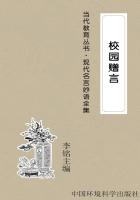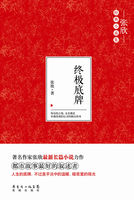I need not pursue these illustrations of the awkward results of excessive zeal in a disciple.It is worth noticing,however,that M'Culloch's practical conclusions are not so rigid as might be inferred.His abstract doctrines do not give his true theory,so much as what he erroneously took to be his theory,the rules with which he works are approximately true under certain conditions,and he unconsciously assumes the conditions to be negligible,and the rules therefore absolute.It must be added that he does not apply his conclusions so rigidly as might be expected.By the help of 'friction,'or the admission that the rule is only true in nineteen cases out of twenty,he can make allowance for many deviations from rigid orthodoxy.He holds,for example,that government interference is often necessary.He wishes in particular for the establishment of a 'good system of public education.'91He seems to have become more sentimental in later years.In the edition of 1843he approves the Factory Acts,remarking that the last then passed may not 'in some respects,have gone far enough.'92He approves a provision for the 'impotent poor,'on the principle of the Elizabethan act,though he disapproves the centralising tendency of the new poor-law.Though he is a good Malthusian,93and holds the instinct of population to be a 'constant quantity'94he does not believe in the impossibility of improvement.The 'necessary'rate of wages fixes only a minimum:an increase of population has been accompanied by an increase of comfort.95Wages rise if the standard of life be raised,and a rise of wages tends to raise the standard.He cordially denounces the benevolent persons who held that better wages only meant more dissipation.Better wages are really the great spur to industry and improvement.96Extreme poverty causes apathy;and the worst of evils is the sluggishness which induces men to submit to reductions of wages.A sense of comfort will raise foresight;and the vis medicatrix should be allowed to act upon every rank of society.He is no doubt an individualist,as looking to the removal of restrictions,such as the Conspiracy Laws,97rather than to a positive action of the government;but it is worth notice that this typical economist is far from accepting some of the doctrines attributed to the school in general.
The classical school blundered when it supposed that the rules which it formulated could be made absolute.
To give them that character,it was necessary to make false assumptions as to the ultimate constitution of society;and the fallacy became clear when the formula were supposed to give a real history or to give first principles,from which all industrial relations could be deduced.Meanwhile,the formula,as they really expressed conditional truths,might be very useful so long as,in point of fact,the conditions existed,and were very effective in disposing of many fallacies.The best illustration would probably be given by the writings of Thomas Tooke (1774-1858),98one of the founders of the Political Economy Club.The History of Prices is an admirable explanation of phenomena which had given rise to the wildest theories.The many oscillations of trade and finance during the great struggle,the distress which had followed the peace,had bewildered hasty reasoners.
Some people,of course,found consolation in attributing everything to the mysterious action of the currency;others declared that the war-expenditure had supplied manufacturers and agriculturists with a demand for their wares,apparently not the less advantageous because the payment came out of their own pockets.99Tooke very patiently and thoroughly explodes these explanations,and traces the fluctuations of price to such causes as the effect of the seasons and the varying events of the war which opened or closed the channels of commerce.The explanation in general seems to be thoroughly sound and conclusive,and falls ill,as far as it goes,with the principles of his allies.He shows,for example,very clearly what were the conditions under which the orthodox theory of rent was really applicable;how bad seasons brought gain instead of loss to the 'agricultural interest,'that is,as Tooke explains,to the landlord and farmer;how by a rise of price out of proportion to the diminution of supply,the farmer made large profits;how rents rose,enclosure bills increased,and inferior land was brought under the plough.The landlord's interest was for the time clearly opposed to that of all other classes,however inadequate the doctrine might become when made absolute by a hasty generalisation.I need not dwell upon the free-trade argument which made the popular reputation of the economists.It is enough to note briefly that the error as to the sphere of applicability of the doctrine did not prevent many of the practical conclusions from being of the highest value.
NOTES:
1.A life of Ricardo by M'Culloch is prefixed to his Works .I cite the edition of 1889.Ricardo's letters to Malthus were published by Mr Bonar in 1887;his letters to M'Culloch,edited by Mr Hollander for the American Economic Association,in 1895;and his letters to H.Trower,edited by Mr Bonar and Mr Hollander,have just appeared (1900).
2.He remarks upon this difficulty in the case of Smith's treatment of rent,and gives a definition to which he scarcely adheres -Works ,p.24('Principles,'ch.ii,1888).
3.Works ,p.278.
Ricardo,it should be said,complained when Malthus interpreted him to mean that this opposition of interests was permanent and absolute.
4.Malthus admits the general principle of free trade,but supports some degree of protection to corn,mainly upon political grounds.He holds,however,with Adam Smith,that 'no equal quantity of productive labour employed in manufactures could ever occasion so great a reproduction as in agriculture.'(Grounds of an Opinion ,etc.p.35)-a relic of the 'physiocrat'doctrine.















